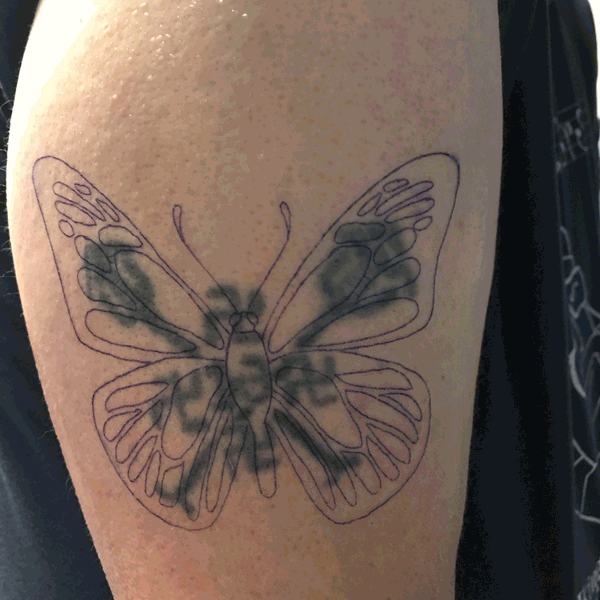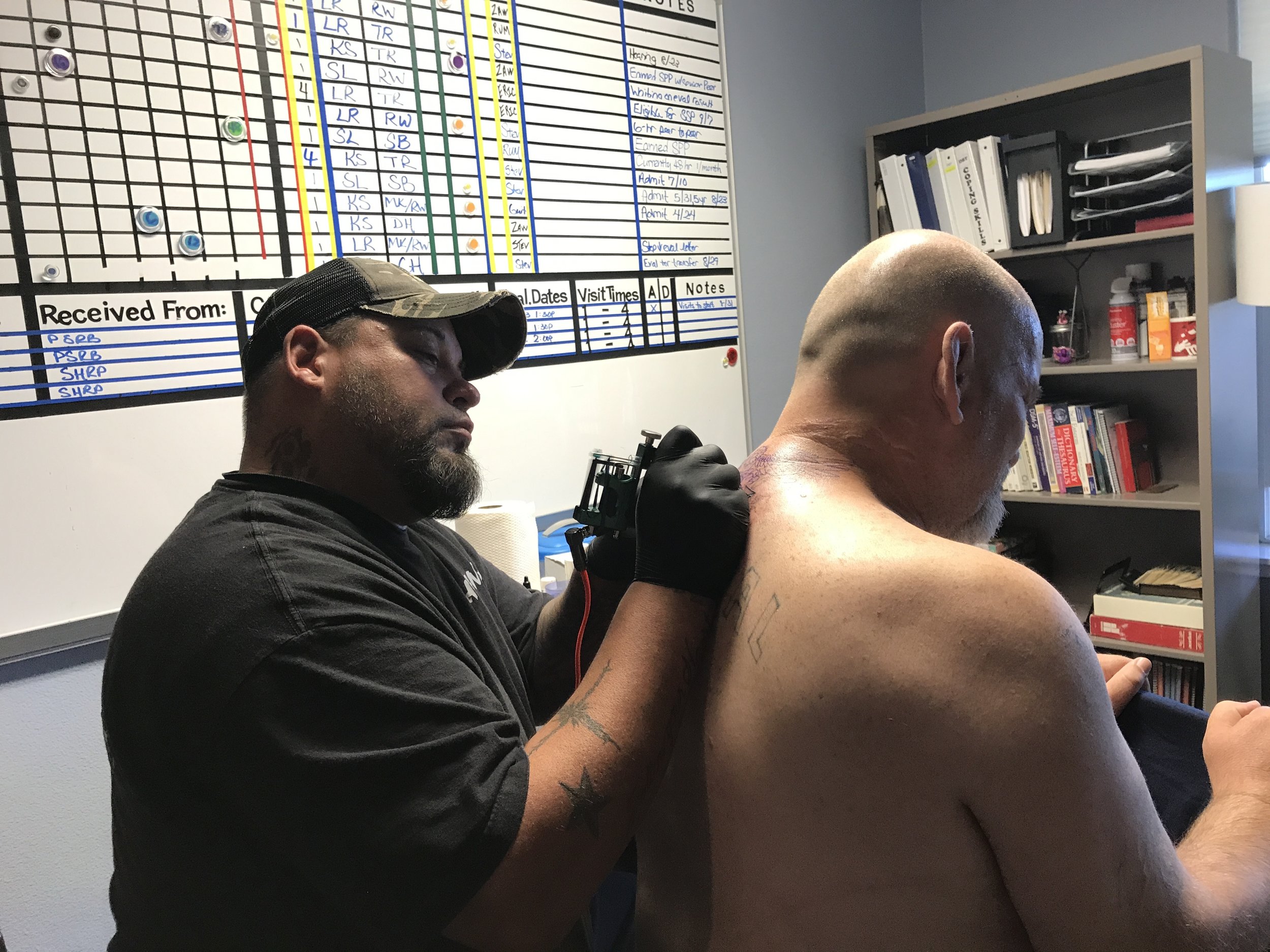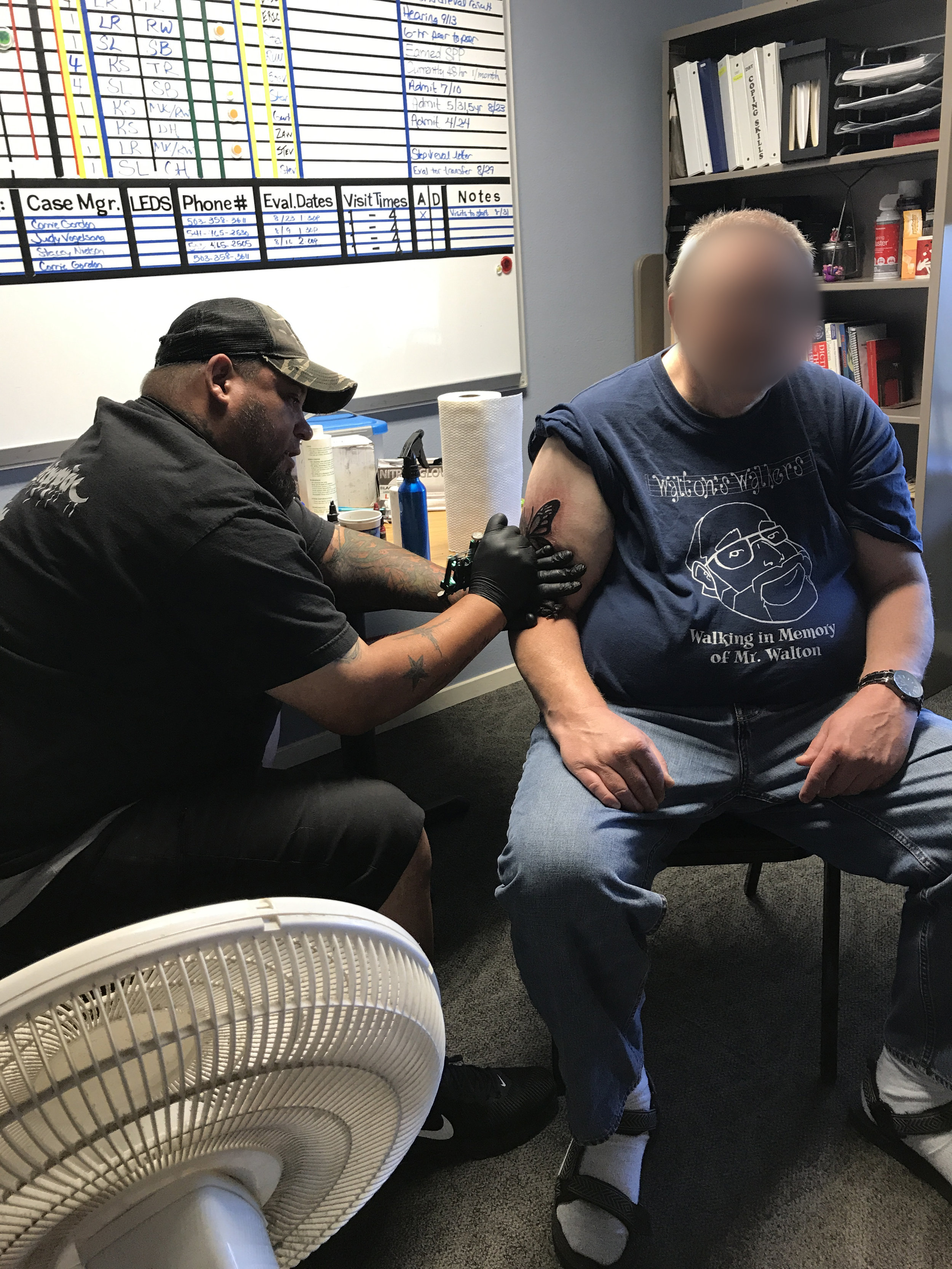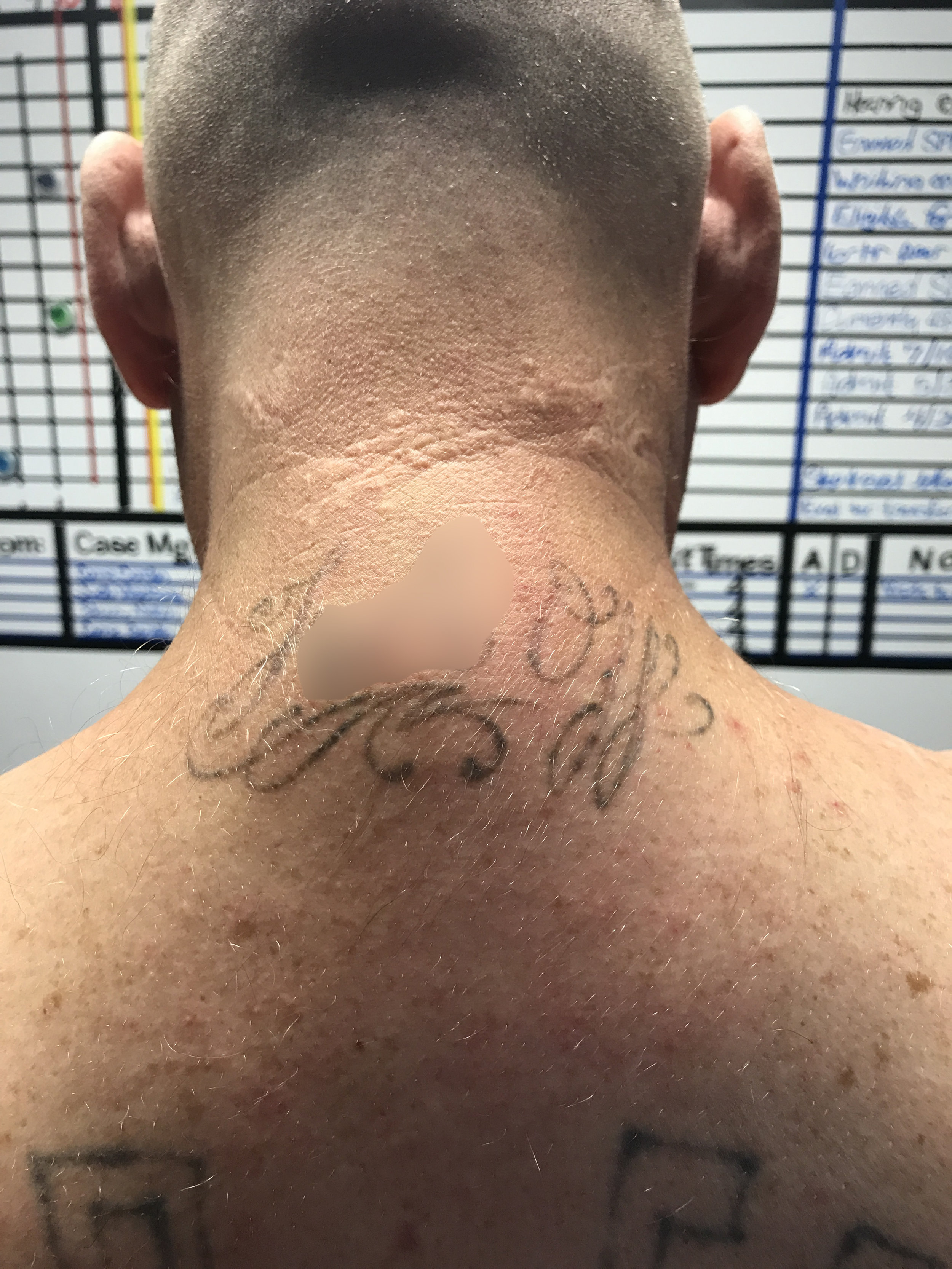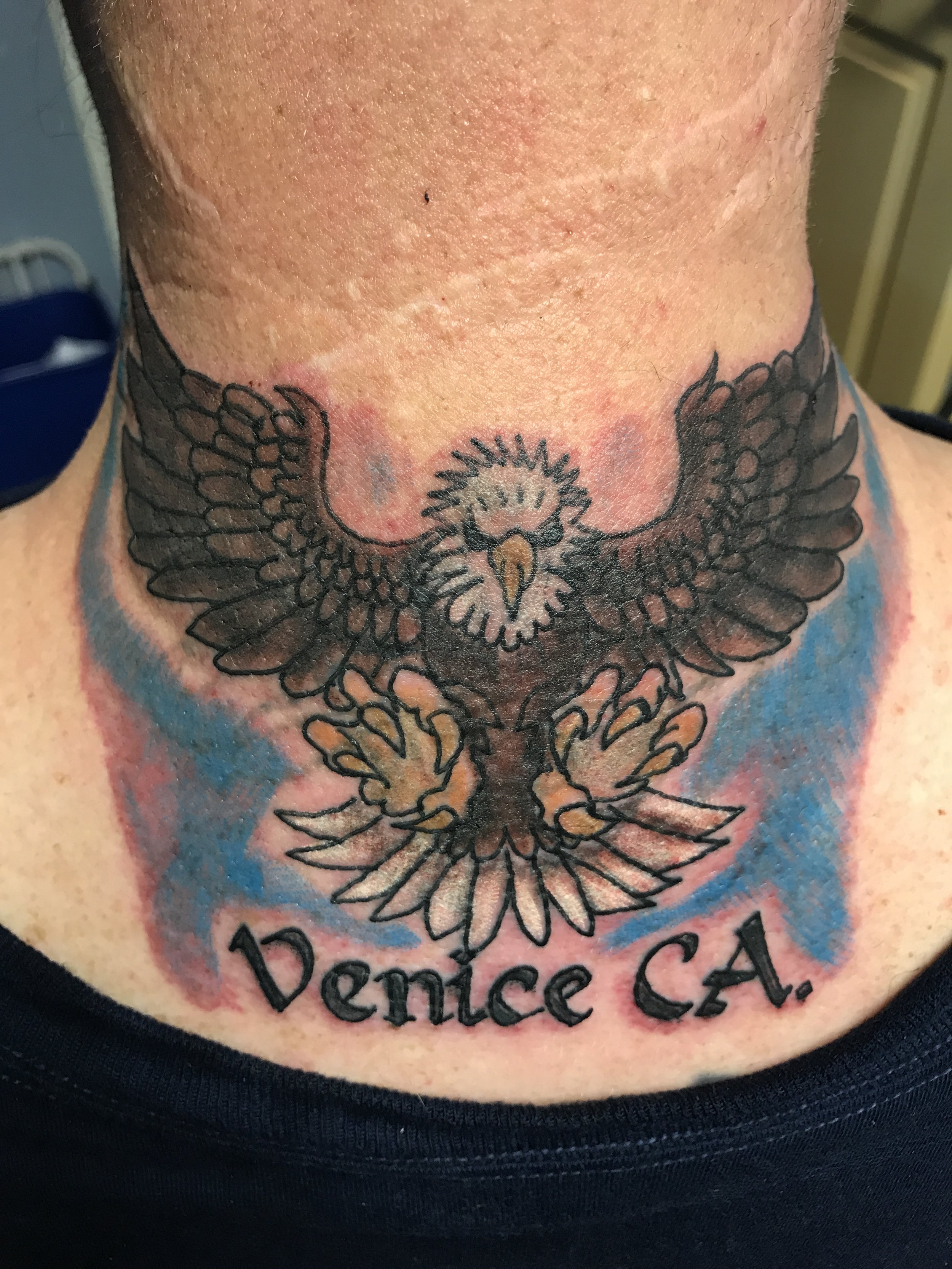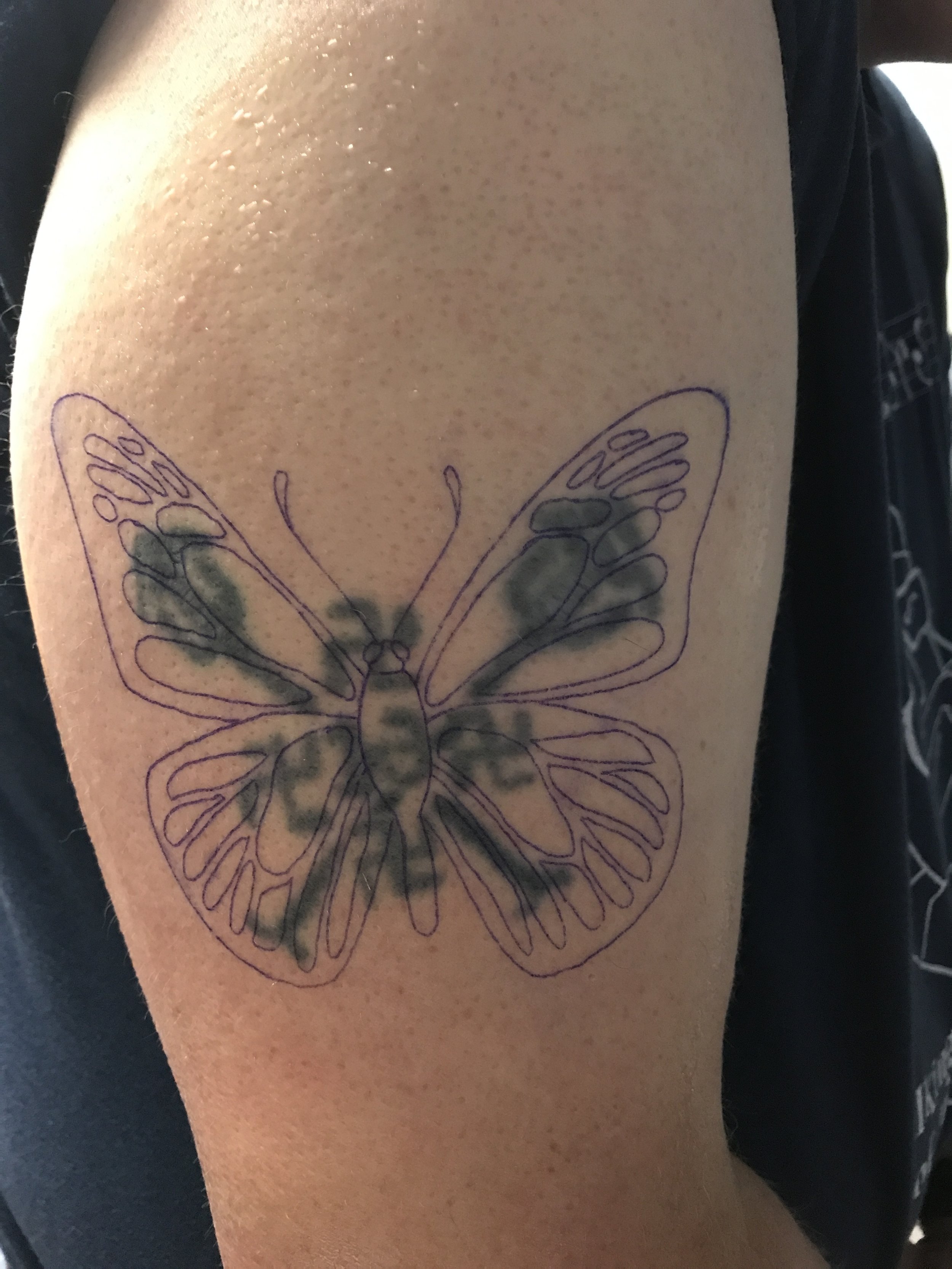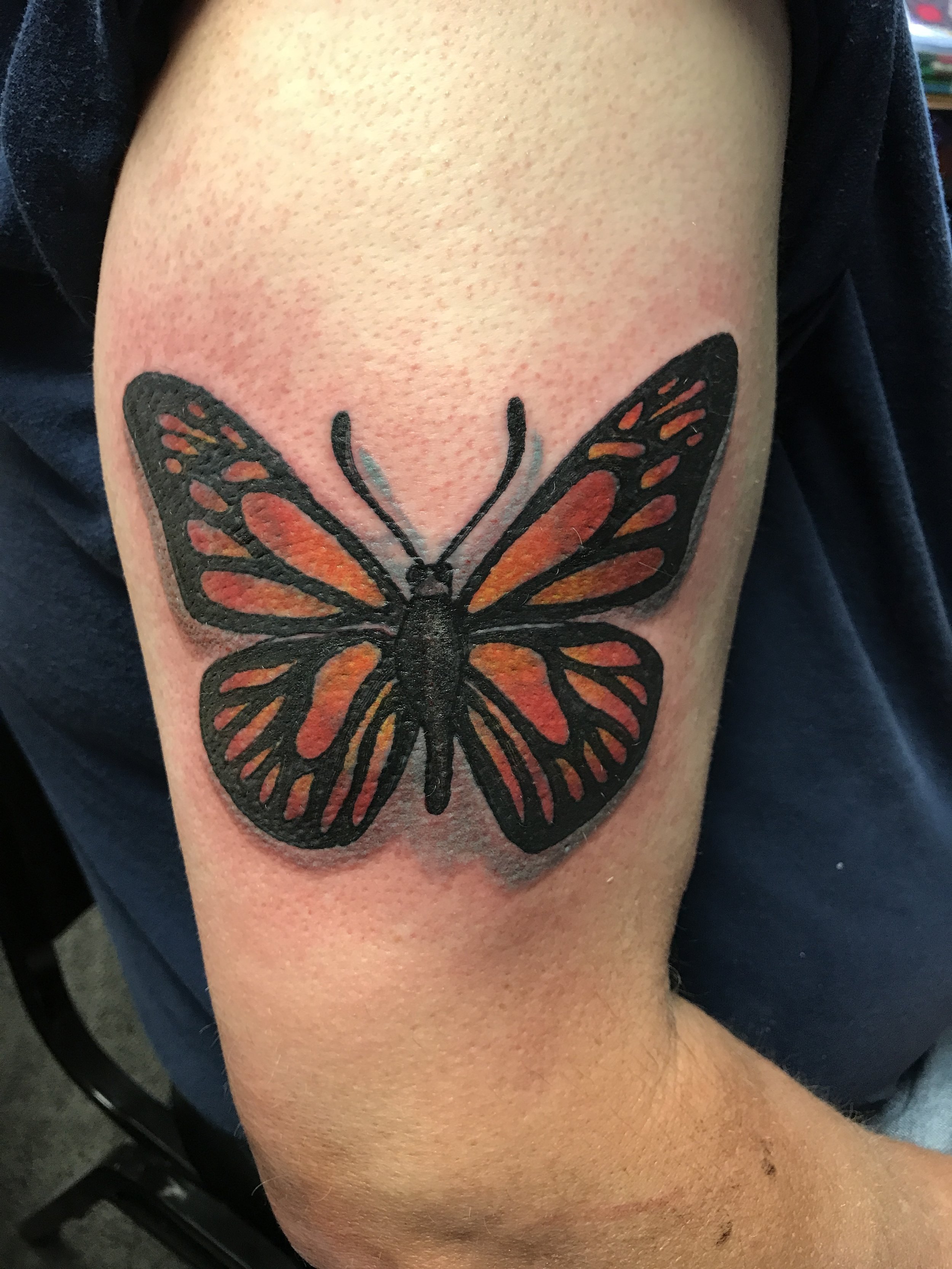Finding Hopes and Dreams in Ink and Needles
/There’s a reason friends and family warn us not to get tattoos — they're permanent. If you change your mind, removing the ink is long, costly, and painful (like running sandpaper across an open wound).
In some instances, tattoos are permanent labels of a past no longer serving a person, especially when someone is trying to move forward in a journey of recovery. Our Recovery Center at Woodburn in Oregon recently heard from a resident who wanted to cover a tattoo he got in prison that aligned him with a white supremacist group.
"It was very clear that he got the swastikas because he feared for his safety," said Kimberley Smith Daly, Team Lead at the Recovery Center. "It was a particular source of shame for him. It’s not what he believed…he did it because he felt he needed to protect himself."
Kimberley called her friend, Justin Heath, a mobile tattoo artist who works with several substance use treatment providers as well as private clients, and transforms old tattoos into new works of art at a reduced rate.
"He has a lot of clients, but this is something he does to give back to the community," said Kimberley. "The tattoos he's doing today that the guys are paying for, he's hardly charging them anything at all because he wants them to have the pride and the value of purchasing their own tattoo, but he knows they aren't always affordable."
After many hours sitting in a chair, the swastika tattoo transformed into a butterfly. Another gentleman at the Recovery Center at Woodburn had a tattoo of an offensive phrase on the back of his neck turned into a soaring eagle. Two symbols of hate changed into symbols of hope and strength.
"We want to get people to where their hopes and dreams are," said Kimberley. "There are companies that will help get people’s gang tattoos removed, but these guys liked the idea of artwork and liked the idea of having it become something beautiful and something they could be proud of, rather than just trying to erase it."
"Kim's actions will profoundly impact these two men's lives for the better for the rest of their lives," said Jim Sechrist, Telecare’s Regional Director of Operations in Oregon.
Since having their tattoos covered, both residents have made ardent strides in their recovery.
“He has been so bright and cheery, and more outgoing, and having conversations with people, initiating more conversations with people,” said Kimberley about the man whose tattoo transformed into an eagle. “It’s the shift in self-esteem that is so key to moving forward in recovery.”


